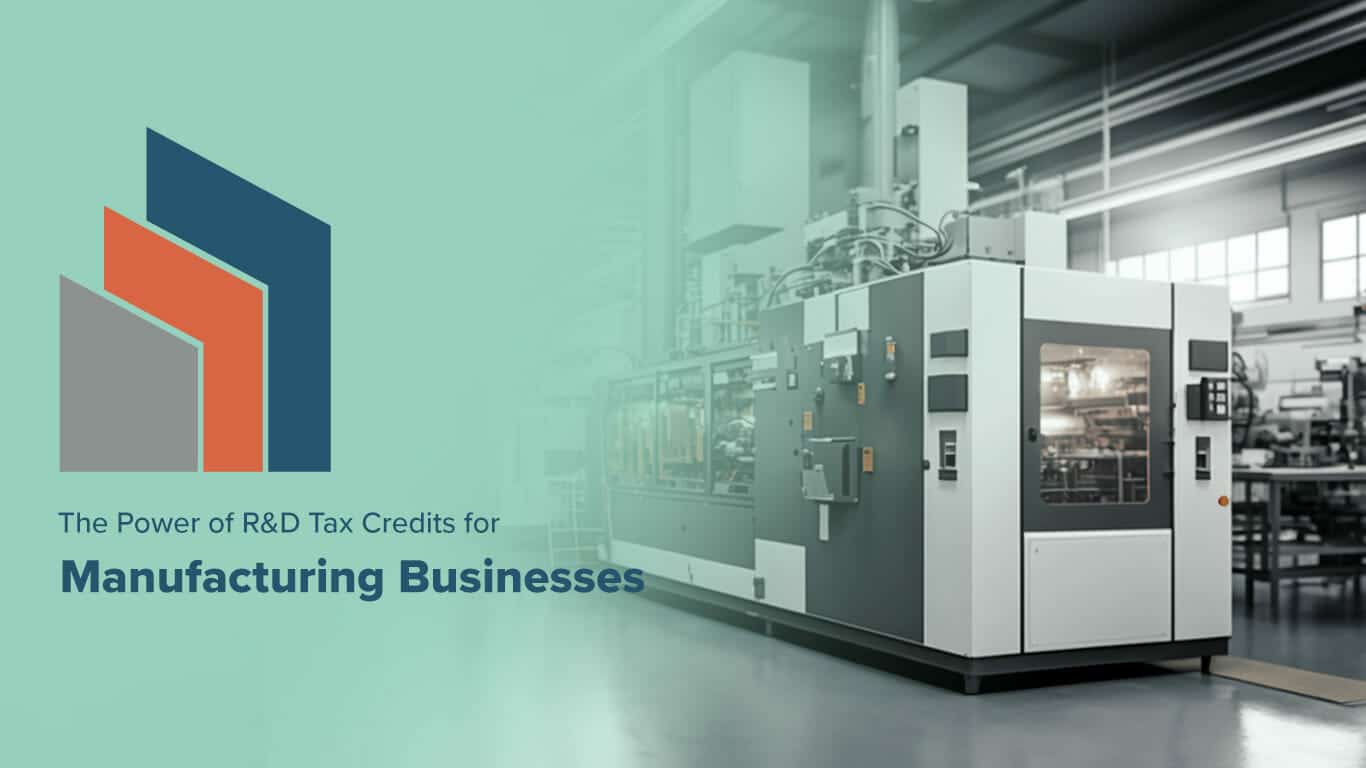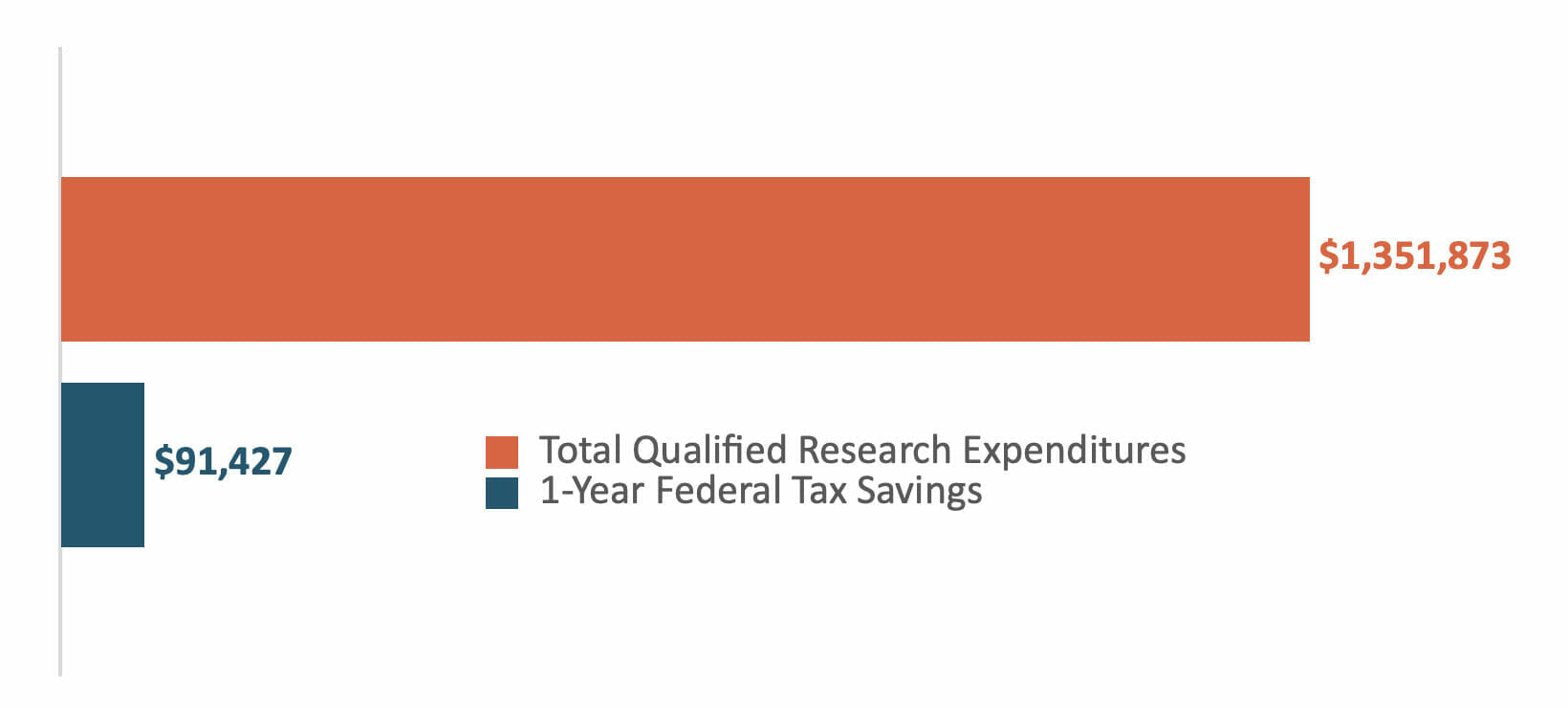It’s no secret that manufacturing companies face a host of tax concerns, but there is a solution. Many business owners are unaware that they are eligible for research and development (R&D) tax credits, which can be a powerful tool mitigating tax liability. In fact, these fully refundable credits can sometimes even generate cash payments for manufacturing businesses.

In this blog post, we’ll explore manufacturing tax concerns, discuss how R&D tax credits can help and provide real-world case study examples to illustrate their tangible benefits. By showcasing how Engineered Tax Services clients have saved hundreds of thousands of dollars on taxes, we'll demonstrate the immense value of these credits.
Manufacturing Tax Concerns
One of the most pressing tax concerns for manufacturers is their federal tax liability. High profits lead to high federal income tax, which can represent a significant expense. State taxes can likewise present a problem—high corporate tax rates in certain states can create an expensive burden for businesses operating within their borders.
Sales tax is another big concern for manufacturers, particularly for businesses that sell their products in multiple states. In addition, larger manufacturers with many employees have to pay high payroll taxes, including Social Security and Medicare taxes. Similarly, those with costly facilities and equipment must contend with significant property tax expenses on their real estate and assets.
All these costs add up, making it difficult for manufacturers to invest their money where it really belongs: in their business. In many cases, reducing one’s tax burden as much as possible can be the key to increased profitability.
How R&D Tax Credits Help
Research and development (R&D) tax credits can provide immense benefit to manufacturers. By affording eligible businesses the means to substantially reduce their tax liability, these tax credits facilitate investments in innovation and technology. As such, R&D tax credits are indispensable in propelling growth and enhancing productivity within the manufacturing sector.
The ability to reduce overall tax liability stands out as one of the main benefits of R&D tax credits. State and federal governments offer tax credits based on a percentage of a business's qualifying R&D expenses, allowing manufacturers to offset their tax liability. This can provide the additional cash flow needed for businesses to invest in other areas of their operations or pay off debt.
Another benefit of R&D tax credits lies in their ability to generate cash payments. Because these credits are refundable, businesses can receive cash payments for their credit amounts even if they have no tax liability. This provides liquidity that can be used to invest in new technology, purchase new equipment or undertake other essential projects.
Case Study Examples
While learning about research and development tax credits is useful, seeing real-world case studies provides concrete evidence of their benefits. Below are examples of Engineered Tax Services clients who saved significantly through state and federal R&D tax credits.
Machine Shop
This manufacturer and machine shop in Florida saved nearly $400,000 on taxes by claiming R&D tax credits. Upon conducting a careful analysis, our R&D tax credit experts were able to uncover a large portion of qualified research and development expenses going toward wages, supplies and contract research.


Custom Manufacturer
Engineered Tax Services worked with this custom manufacturer in New York to successfully claim more than $650,000 in research and development tax credits. Our R&D credit analysis revealed nearly $7 million in qualified wages that could be categorized as research and development expenses.


Specialty Manufacturer
Upon conducting an R&D tax credit evaluation for this specialty manufacturer in Florida, Engineered Tax Services discovered well over $1 million in qualified research and development expenses. This ultimately saved the manufacturer nearly $100,000 on their federal taxes.


Conclusion
If you own a manufacturing company that is involved in the creation of original products, processes or inventions, you may be eligible for lucrative research and development tax credits. These credits offer valuable support in alleviating the financial burdens associated with R&D activities and can be used to reduce your business’s overall tax burden.
Engineered Tax Services boasts a team of experienced tax professionals who can help categorize your expenses accurately and file your paperwork properly, ensuring you receive the maximum tax credit available. Moreover, our work is fully backed by audit defense for your peace of mind.
We understand that every business is unique, which is why we offer free R&D tax credit analysis to help determine eligibility and identify potential tax savings. Our team will work with you to categorize your R&D activities and all eligible expenses, maximizing your potential tax savings.
Don't leave valuable tax savings on the table. Contact Engineered Tax Services today to learn more about how we can help your business take advantage of R&D tax credits and invest in the future.



